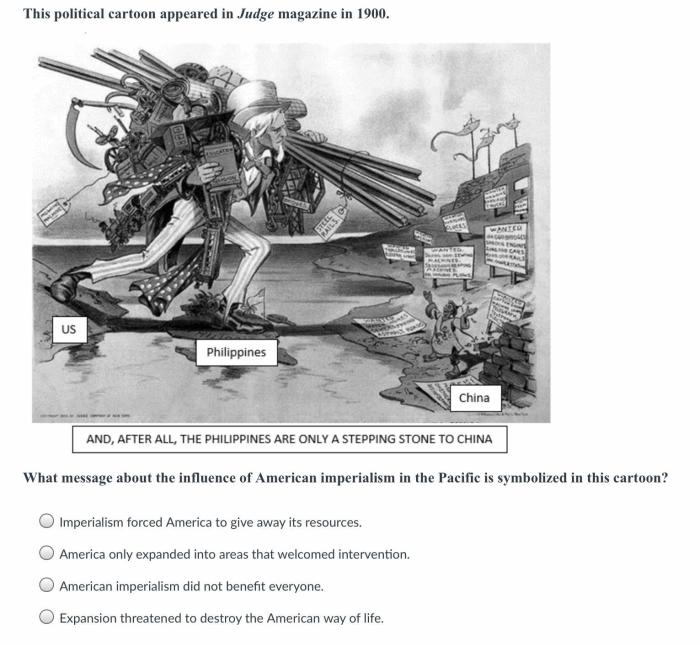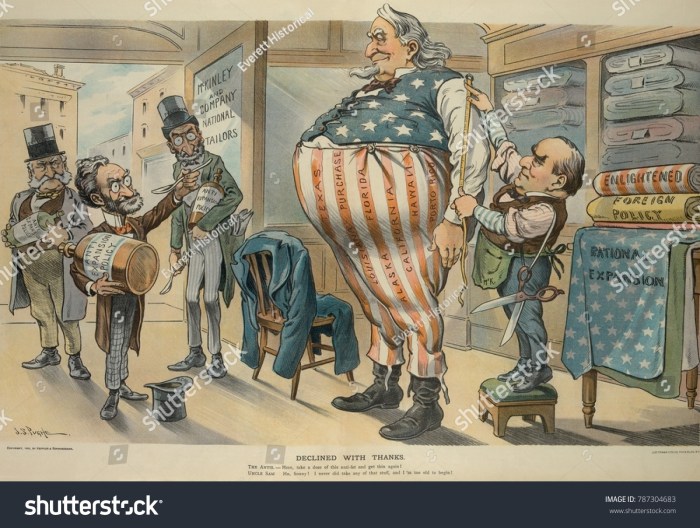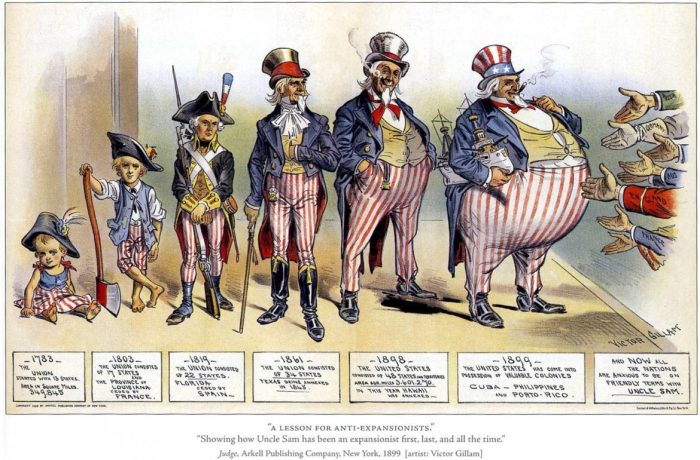A Lesson for Anti-Expansionists Cartoon presents a captivating exploration of the historical context, visual elements, and political implications of a powerful political satire. This cartoon serves as a valuable lens through which to examine the anti-expansionist perspective and its impact on American foreign policy.
The cartoon, published during a period of intense debate over American expansionism, employed striking imagery and symbolism to convey its message. It effectively captured the concerns and arguments raised by anti-expansionists, who opposed the acquisition of new territories and the potential consequences of imperialistic policies.
Historical Context

The “A Lesson for Anti-Expansionists” cartoon was published in the American weekly magazine Puck on August 10, 1898, amidst the ongoing Spanish-American War. The war, which began in April 1898, marked a turning point in American foreign policy as the United States emerged as a global power.
The cartoon reflects the complex political and social climate of the time, characterized by both expansionist fervor and anti-imperialist sentiment.
Cartoon Analysis

The cartoon depicts a large, muscular figure labeled “Uncle Sam” standing on a globe with his hands resting on the continents of Asia and the Americas. He is shown with a determined expression, his face set in a stern frown.
The globe is covered in flags, symbolizing the various territories under American control. The caption below reads, “A Lesson for Anti-Expansionists.”
The cartoon’s message is clear: the United States is destined to expand its empire and any opposition to this expansionism will be futile. The cartoon uses satire and symbolism to convey this message, portraying Uncle Sam as a powerful and unwavering force.
Anti-Expansionist Perspective

The anti-expansionist movement in the United States emerged in the late 19th century in opposition to the country’s growing imperial ambitions. Anti-expansionists argued that imperialism was immoral and would lead to the corruption of American values. They believed that the United States should focus on its own domestic affairs and avoid foreign entanglements.
The “A Lesson for Anti-Expansionists” cartoon was a direct response to the anti-expansionist movement. The cartoon’s message was that the United States was destined to expand and that any opposition to this expansionism would be futile.
Imperialism and Expansionism
Imperialism is the policy or practice of extending a country’s power and influence through diplomacy or military force. Expansionism is the policy or practice of acquiring new territories or increasing a country’s sphere of influence.
The United States has a long history of imperialism and expansionism. In the 19th century, the United States acquired vast territories in the West and Southwest through wars with Mexico and Native American tribes. In the late 19th century, the United States expanded its empire into the Pacific and Caribbean regions, acquiring territories such as Hawaii, Guam, and Puerto Rico.
Impact and Legacy: A Lesson For Anti-expansionists Cartoon
The “A Lesson for Anti-Expansionists” cartoon had a significant impact on public opinion and political discourse. The cartoon helped to galvanize support for American expansionism and contributed to the country’s eventual victory in the Spanish-American War.
The cartoon’s legacy is complex. It remains a powerful symbol of American imperialism and expansionism. However, it also serves as a reminder of the ongoing debate over the morality and consequences of American foreign policy.
FAQ
What is the main message of A Lesson for Anti-Expansionists Cartoon?
The cartoon conveys the concerns of anti-expansionists who opposed the acquisition of new territories and the potential consequences of imperialistic policies.
How did the cartoon impact public opinion?
The cartoon’s powerful imagery and symbolism effectively captured the concerns of anti-expansionists, influencing public opinion and contributing to the debate over American expansionism.
